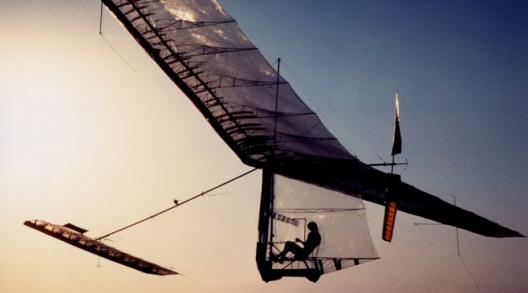How a 1959 Aviation Challenge Can Help Your Business Fly

In 1959, a man named Henry Kremer had £50,000 going spare and offered it up as a prize to the first person to build and fly a human powered aircraft in a figure-of-eight around two markers spaced half a mile apart. He later - while the first prize still remained unclaimed - found another £100,000 behind the fridge and told everyone they could have that as well if they could power themselves across the English Channel.
As you can imagine, people tried, and they tried hard. They spent a lot of time building complex machines that worked perfectly - in theory. There would then be twelve months of thinking, planning and building: then flight day. Failure. Back to the drawing board and back to another twelve months of hard work.
A year after the prize was announced there was no winner. Ten years later there was still no winner. Seventeen years later there was still no winner.
Then along came glider pilot Paul MacReady, owner of a company that worked with alternative and efficient energies, and he was in trouble. He owed US$100,000 to a friend after a failed business venture. The obvious answer? Win the Kremer prize.
Simple - except how could he succeed where so many others had failed? He did something very clever.
While everyone chasing the prize were understandably focussed on how to build an aircraft capable of doing something new, he decided to look at the problem from a totally different angle and concentrated his efforts on building a plane specifically designed to be easily and speedily changed and repaired.
This meant he could test lots of different ideas, quickly. Often trying new, sometimes crazy ideas out on a daily basis.
Did it work? You bet! Six months later he cashed his £50,000 cheque and repaid his US$100k debt. A couple of years after that his plane flew across the English Channel taking the second prize and pocketing a cool £100k.
It's very easy to look at the literal you need to solve and forget about the processes that are critical to achieve the actual desired end result. That leads to delays, inefficiency, busted budgets and frustration.
A few years ago, we had three seperate businesses which needed complicated and highly advanced web applications. We didn't have the resources to build them all at the same time, so we decided instead to build an advanced framework allowing us to rapidly develop similar applications in record times. TessChoob was born, and has since become one of the most sophisticated web application frameworks imaginable. We can launch ideas, and see if they fly. If they don't we've only lost a small amount of time. We can tweak and change products quickly and efficiently find out what works and what doesn't in a fraction of the time.
Try to make small, fast changes in your business. If it works, keep it and improve on it. If it doesn't work - admit it, ditch it and move on. You don't have all the answers - none of us do - so embrace methods of being able to test and trial, to learn and evolve.
How can you completely change the way you look at your biggest problems? Maybe you could describe the problem to someone who has never heard of it. Your neighbour / mum / kids / golfing buddies / hairdresser? The less they know about your industry the better. You might be surprised by their suggestions, or even what you think of yourself when you explain things from scratch.
P.S. Incidentally, there are still some Kremer prizes available - more information here.
Comments